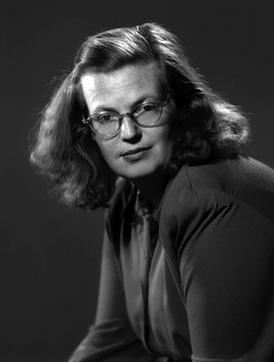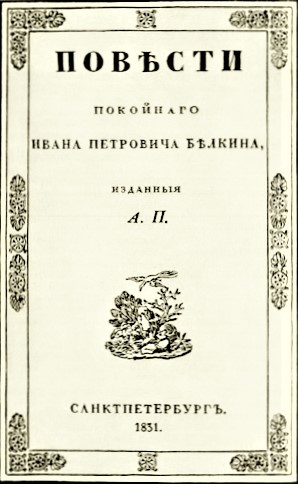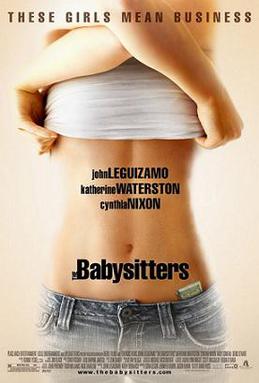Related Research Articles

Louisa May Alcott was an American novelist, short story writer, and poet best known for writing the novel Little Women (1868) and its sequels Little Men (1871) and Jo's Boys (1886). Raised in New England by her transcendentalist parents, Abigail May and Amos Bronson Alcott, she grew up among many well-known intellectuals of the day, including Margaret Fuller, Ralph Waldo Emerson, Nathaniel Hawthorne, Henry David Thoreau, and Henry Wadsworth Longfellow.

Little Women is a coming-of-age novel written by American novelist Louisa May Alcott, originally published in two volumes in 1868 and 1869. The story follows the lives of the four March sisters—Meg, Jo, Beth, and Amy—and details their passage from childhood to womanhood. Loosely based on the lives of the author and her three sisters, it is classified as an autobiographical or semi-autobiographical novel.

Shirley Hardie Jackson was an American writer known primarily for her works of horror and mystery. Over the duration of her writing career, which spanned over two decades, she composed six novels, two memoirs, and more than 200 short stories.

Steel Magnolias is a 1989 American comedy-drama film directed by Herbert Ross and starring Academy Award winners Sally Field, Shirley MacLaine, and Olympia Dukakis with Dolly Parton, Daryl Hannah, and Julia Roberts. The film is a film adaptation of Robert Harling's 1987 play of the same name about the bond a group of women share in a small-town Southern community, and how they cope with the death of one of their own. The supporting cast features Tom Skerritt, Dylan McDermott, Sam Shepard and Kevin J. O'Connor.
"The Lottery" is a short story by Shirley Jackson that was first published in The New Yorker on June 26, 1948. The story describes a fictional small American community which observes an annual tradition known as "the lottery", which is intended to ensure a good harvest and purge the town of bad omens. The lottery, its preparations, and its execution are all described in detail, though it is not revealed until the end what actually happens to the person selected by the random lottery: the selected member of the community is stoned to death by the other townspeople.

"Bennington Triangle" is a phrase coined by American author Joseph A. Citro to denote an area of southwestern Vermont within which a number of people went missing between 1945 and 1950. This was further popularized in two books, including Shadow Child, in which Citro devoted chapters to discussion of these disappearances and various items of folklore surrounding the area. According to Citro, the area shares characteristics with the Bridgewater Triangle in Southeastern Massachusetts.
The Haunting of Hill House is a 1959 gothic horror novel by American author Shirley Jackson. It was a finalist for the National Book Award and has been made into two feature films and a play, and is the basis of a Netflix series.

Miranda Montgomery is a fictional character from the American serial drama, All My Children.

The Tales of the Late Ivan Petrovich Belkin is a series of five short stories and a fictional editorial introduction by Russian author Aleksandr Pushkin. The collection is opened with the editorial, in which Pushkin pretends to be the verbose publisher of Belkin's tales. The tales themselves are not related to one another, except that they are all said in the introduction to be stories told by various people to a recently deceased landowner, Ivan Petrovich Belkin. The introduction continues to say that Belkin was an interesting and mysterious man, even to the point that the woman he left his estate to had never met him. It is also mentioned that Belkin's favorite pastime was to collect and hear stories, several of which are to be presented to the reader.

The Babysitters is a 2007 independent drama film written and directed by David Ross. It stars John Leguizamo, Katherine Waterston and Cynthia Nixon, with Andy Comeau and Denis O'Hare. The story follows a teenager who turns her babysitting service into a call girl service for married men after fooling around with one of her customers.
Aunt Jane's Nieces is the title of a juvenile novel published by Reilly & Britton in 1906, and written by L. Frank Baum under the pen name "Edith Van Dyne." Since the book was the first in a series of novels designed for adolescent girls, its title was applied to the entire series of ten books, published between 1906 and 1918.
Going to Meet the Man, published in 1965, is a collection of eight short stories by American writer James Baldwin. The book, dedicated "for Beauford Delaney", covers many topics related to anti-Black racism in American society, as well as African-American–Jewish relations, childhood, the creative process, criminal justice, drug addiction, family relationships, jazz, lynching, sexuality, and white supremacy.

This Christmas is a 2007 American Christmas comedy film produced by Rainforest Films and distributed by Screen Gems. Written, produced, and directed by Preston A. Whitmore II, it is a Christmas-time story that centers on the Whitfield family, whose eldest has come home for the first time in four years. The film is named after the 1970 Donny Hathaway song of the same name, which Chris Brown covers in the film. The Whitfield family overcomes many trials and obstacles during the Christmas season.
"The Lovely House" is a gothic short story and weird tale by American writer Shirley Jackson, first published in 1950. The story features several overtly gothic elements, including a possibly haunted house, doubling, and the blurring of real and imaginary. It appeared under the title "A Visit" in New World Writing, No. 2, 1952.

The New Daughter is a 2009 American horror film and the feature directorial debut of Spanish screenwriter Luis Berdejo. It stars Kevin Costner, Ivana Baquero and Samantha Mathis. Based on the short story of the same name by John Connolly, it tells the story of a novelist and his two children who encounter a malevolent presence when they move to a house in the country adjacent to a burial mound.

Come Along with Me is a posthumous collection of works by American writer Shirley Jackson. It contains the incomplete titular novel, on which Jackson was working at the time of her death, three lectures delivered by Jackson, and sixteen short stories, mostly in the gothic genre, including Jackson's best known work, "The Lottery".

Genevieve Valentine is an American science fiction and fantasy writer. Her first novel, Mechanique: A tale of the Circus Tresaulti, won the Crawford Award for a first fantasy novel, and was shortlisted for the Nebula.

Hangsaman is a 1951 gothic novel by American author Shirley Jackson. The second of Jackson's published novels, Hangsaman is a bildungsroman centering on lonely college freshman Natalie Waite, who descends into madness after enrolling in a liberal arts college.
"Like Mother Used to Make" is a short story by Shirley Jackson. It was originally published in the 1949 short story collection The Lottery and Other Stories by publisher Farrar, Straus and Giroux. It contains the second appearance of James Harris, a recurring character in the collection.

"Paranoia" is a short story by Shirley Jackson first published on August 5, 2013 in The New Yorker long after the author's death in 1965. Jackson's children found the story in her papers in the Library of Congress. It has since been reprinted in Dark Tales (2016).
References
- 1 2 Shirley Jackson’s Louisa, Please Come Home Analysis Retrieved 16/11/21.
- ↑ Shirley Jackson » Dark Tales Retrieved 16/11/21.
- ↑ Exploration of family dynamics, public mourning, and the erosion – and precariousness – of identity Retrieved 16/11/2021.
- ↑ Short Story Sunday: Louisa Please Come Home Retrieved 16/11/2021.
- ↑ Teachers Pay Teachers Retrieved 16/11/2021.
- 1 2 Identity Crisis Retrieved 16/11/2021.